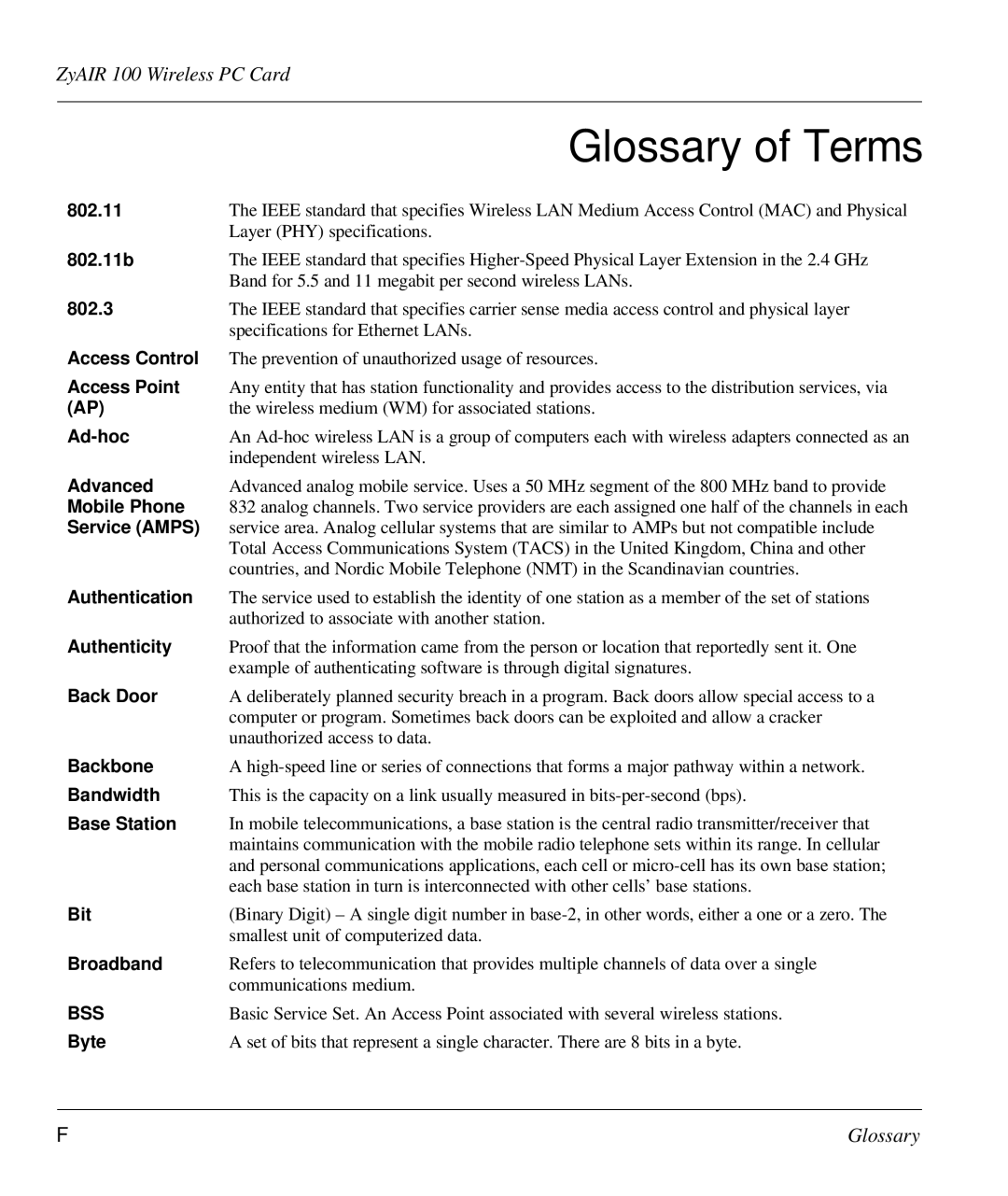
ZyAIR 100 Wireless PC Card
| Glossary of Terms |
802.11 | The IEEE standard that specifies Wireless LAN Medium Access Control (MAC) and Physical |
| Layer (PHY) specifications. |
802.11b | The IEEE standard that specifies |
| Band for 5.5 and 11 megabit per second wireless LANs. |
802.3 | The IEEE standard that specifies carrier sense media access control and physical layer |
| specifications for Ethernet LANs. |
Access Control | The prevention of unauthorized usage of resources. |
Access Point | Any entity that has station functionality and provides access to the distribution services, via |
(AP) | the wireless medium (WM) for associated stations. |
| An |
| independent wireless LAN. |
Advanced | Advanced analog mobile service. Uses a 50 MHz segment of the 800 MHz band to provide |
Mobile Phone | 832 analog channels. Two service providers are each assigned one half of the channels in each |
Service (AMPS) | service area. Analog cellular systems that are similar to AMPs but not compatible include |
| Total Access Communications System (TACS) in the United Kingdom, China and other |
| countries, and Nordic Mobile Telephone (NMT) in the Scandinavian countries. |
Authentication | The service used to establish the identity of one station as a member of the set of stations |
| authorized to associate with another station. |
Authenticity | Proof that the information came from the person or location that reportedly sent it. One |
| example of authenticating software is through digital signatures. |
Back Door | A deliberately planned security breach in a program. Back doors allow special access to a |
| computer or program. Sometimes back doors can be exploited and allow a cracker |
| unauthorized access to data. |
Backbone | A |
Bandwidth | This is the capacity on a link usually measured in |
Base Station | In mobile telecommunications, a base station is the central radio transmitter/receiver that |
| maintains communication with the mobile radio telephone sets within its range. In cellular |
| and personal communications applications, each cell or |
| each base station in turn is interconnected with other cells’ base stations. |
Bit | (Binary Digit) – A single digit number in |
| smallest unit of computerized data. |
Broadband | Refers to telecommunication that provides multiple channels of data over a single |
| communications medium. |
BSS | Basic Service Set. An Access Point associated with several wireless stations. |
Byte | A set of bits that represent a single character. There are 8 bits in a byte. |
F | Glossary |
